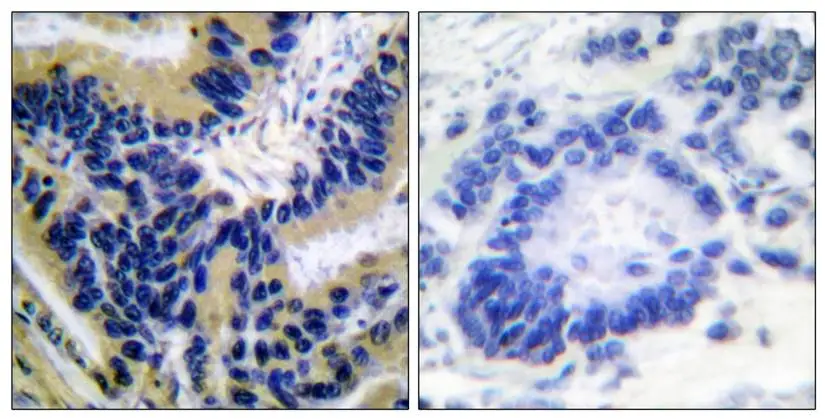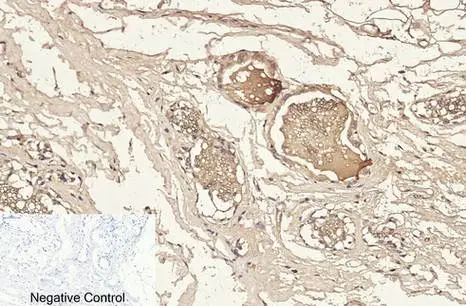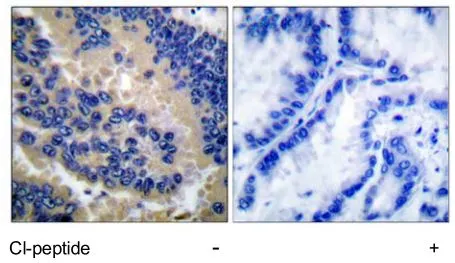
IHC-P analysis of human lung carcinoma tissue using GTX86909 Caspase 3 (cleaved Asp175) antibody. The picture on the right is blocked with the synthesized peptide.
Caspase 3 (cleaved Asp175) antibody
GTX86909
ApplicationsImmunoHistoChemistry, ImmunoHistoChemistry Paraffin
Product group Antibodies
ReactivityHuman
TargetCASP3
Overview
- SupplierGeneTex
- Product NameCaspase 3 (cleaved Asp175) antibody
- Delivery Days Customer9
- Application Supplier NoteIHC-P: 1:50~1:100. *Optimal dilutions/concentrations should be determined by the researcher.Not tested in other applications.
- ApplicationsImmunoHistoChemistry, ImmunoHistoChemistry Paraffin
- CertificationResearch Use Only
- ClonalityPolyclonal
- ConjugateUnconjugated
- Gene ID836
- Target nameCASP3
- Target descriptioncaspase 3
- Target synonymsCPP32, CPP32B, SCA-1, caspase-3, CASP-3, CPP-32, PARP cleavage protease, SREBP cleavage activity 1, apopain, caspase 3, apoptosis-related cysteine peptidase, caspase 3, apoptosis-related cysteine protease, cysteine protease CPP32, procaspase3, protein Yama
- HostRabbit
- IsotypeIgG
- Protein IDP42574
- Protein NameCaspase-3
- Scientific DescriptionThe protein encoded by this gene is a cysteine-aspartic acid protease that plays a central role in the execution-phase of cell apoptosis. The encoded protein cleaves and inactivates poly(ADP-ribose) polymerase while it cleaves and activates sterol regulatory element binding proteins as well as caspases 6, 7, and 9. This protein itself is processed by caspases 8, 9, and 10. It is the predominant caspase involved in the cleavage of amyloid-beta 4A precursor protein, which is associated with neuronal death in Alzheimers disease. [provided by RefSeq, Aug 2017]
- ReactivityHuman
- Storage Instruction-20°C or -80°C,2°C to 8°C
- UNSPSC12352203
References
- Ruan Y, Hu K, Chen H. Autophagy inhibition enhances isorhamnetin‑induced mitochondria‑dependent apoptosis in non‑small cell lung cancer cells. Mol Med Rep. 2015,12(4):5796-806. doi: 10.3892/mmr.2015.4148Read this paper




![WB analysis of HeLa cells treated with camptothecin (2microM) lysate using GTX59551 Caspase 3 antibody [C33].](https://www.genetex.com/upload/website/prouct_img/normal/GTX59551/Caspase-3-antibody-C33-GTX59551-WB-1_18121409_343_w_23061123_868.webp)
